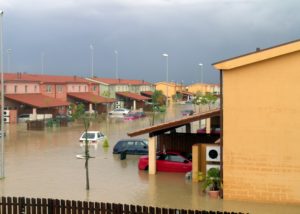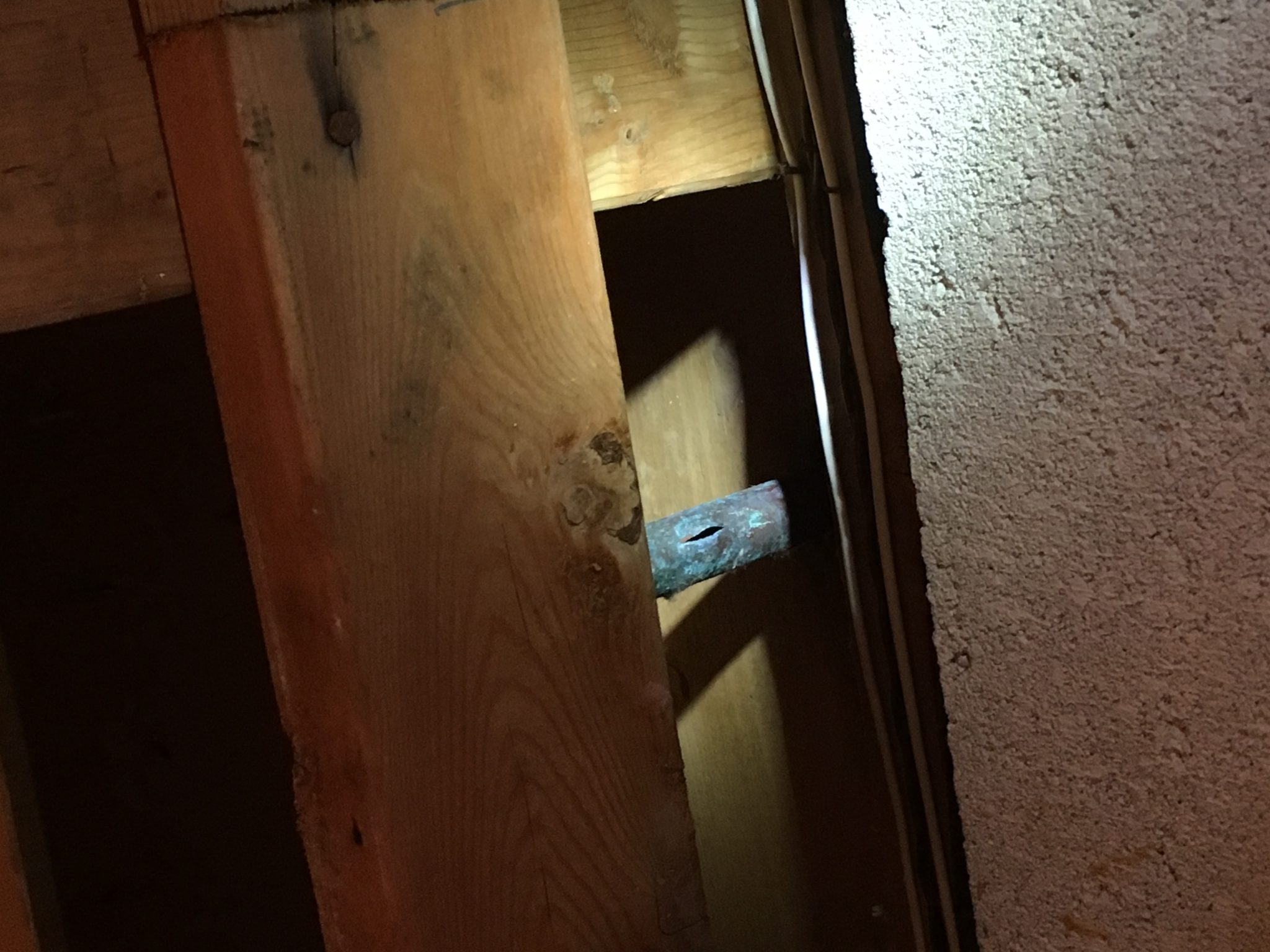
Hurricane season is here again! It comes every year and this year it started June 1st and doesn’t end until November 30th. Being an annual event it may cause some concerns for homeowners. My top concern would be will I end up with an indoor swimming pool in my basement? There are many reasons for such a catastrophic event and here are my top 11 (not in any particular order):
- Basement location: It’s below grade (ground level) and that is where groundwater naturally occurs. Depending on your home’s location the depth of the water table could be below or even above our basement floor. Given hydrostatic pressures, this could give you troubles.
- Lot Grading: Is the earth around your home properly graded? Make sure the top surface of your yard slopes away from your foundation wall. If it is not, water will sit on the foundation and seep into the earth and possibly penetrate your basement walls.
- Foundation Drains: Typically a home has a perforated drain pipe installed adjacent to the footing of your foundation wall. If the drain was not installed properly it could become clogged and ineffective. Its main purpose is to catch water coming down the foundation wall and carry it away from your home, or to a sump pit with a pump. So if it is not doing its job you will have a problem.
- Clogged Gutters: Your roof catches all the rainwater coming down over your home and diverts it to the gutters. If the gutters are clogged the rainwater will come off the edge of your roof in a sheet and will drive down into the earth adjacent to your foundation. It will be too strong to be carried away by a properly graded home. Make sure you check your gutters during a storm to ensure they are working properly. In addition to flooding, this type of water saturation could erode the earth under your foundation’s footings leading to structural cracking of your foundation wall.
- Downspout: If the gutter is working well then make sure the downspout is also functioning and installed properly. The downspout should be piped away from your home a minimum of 10 feet from the foundation wall.
- Pavement: Do you have a paved driveway? Make sure it has not settled by your home’s foundation. If it has it could reverse the water to flow directly against your home’s foundation.
- Sewer Back-up: We don’t even want to think about this but I think it speaks for itself!
- Sump Pump Failure: If you have a sump pit in your basement that is equipped with a sump pump make sure it is operating properly. Also, it’s a good idea to have a battery back-up type of pump for those times when the electricity goes out.
- Underground Utilities: Water supply lines or even a lawn irrigation system could become penetrated and fail to cause water to keep pumping into your foundation wall without you even knowing it until it’s too late.
- Heavy Rain: Ground saturation is just going to get you if Mother Nature wants it to!

- Burst Pipe: Maybe sometime during the winter your exterior hose bib froze and you were not even aware of it. Then summer comes and someone goes to grab some water from the hose bib and for some reason you see mold growing in one of your finished rooms in the basement! It’s not until you open the wall and Voilà you discover your copper pipe has been compromised!


